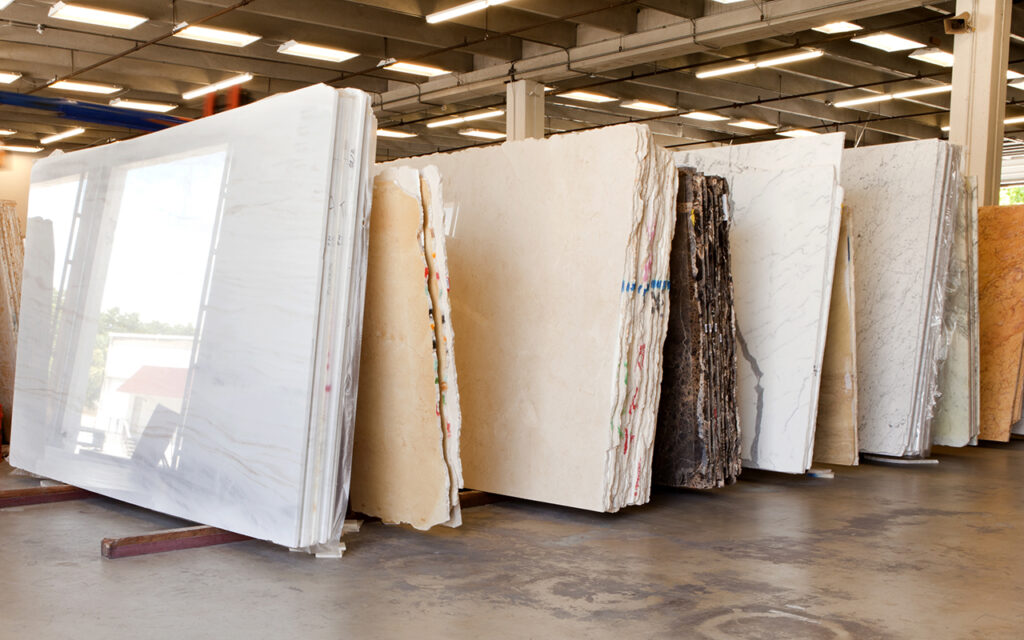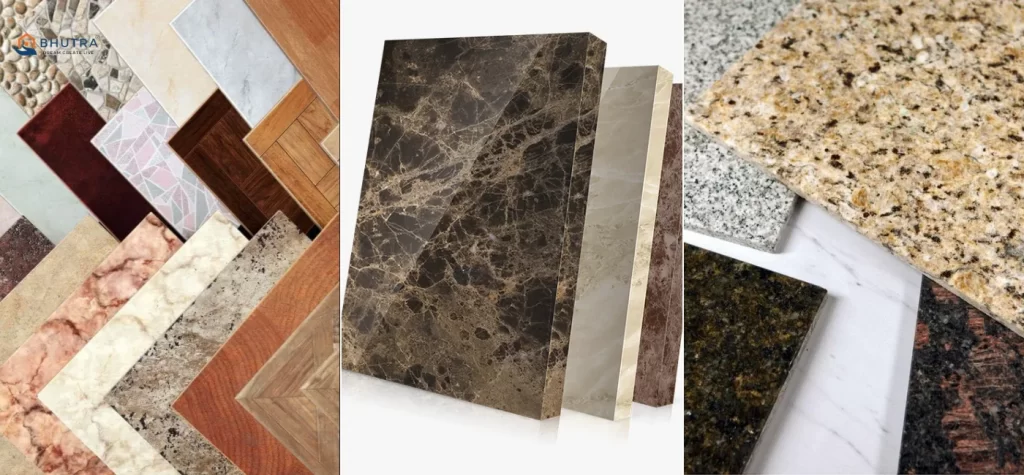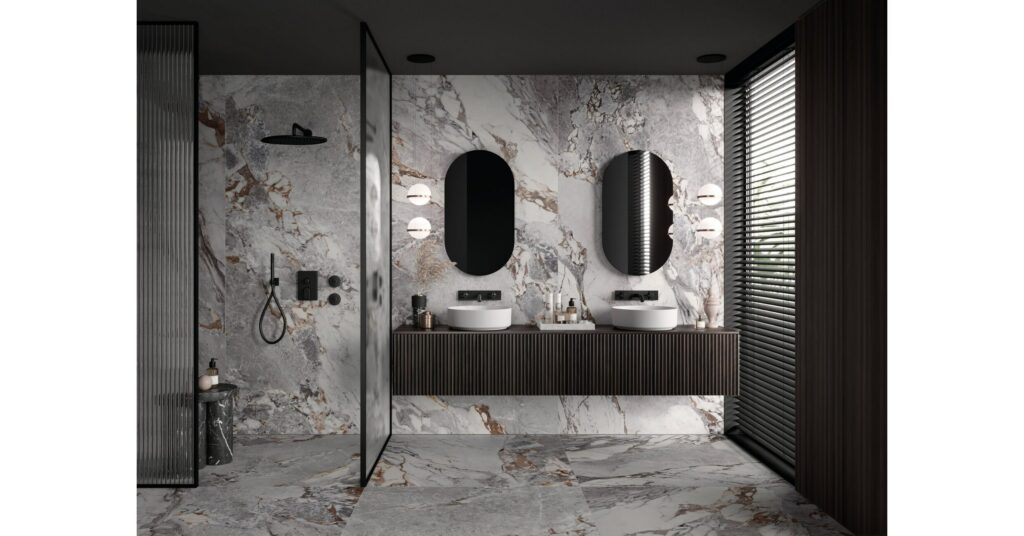If you’re considering starting a business as a marble and tile installer, understanding the differences between residential and commercial projects is essential. While both require similar skills, the scope of work, costs, materials, and approach vary significantly. For professional installers, knowing these aspects will allow you to plan projects better and accurately calculate installation costs.
In this article, we’ll explore the key differences between installing marble in homes and businesses, while offering tips to help you optimize your business and stay on top of the latest design trends.
Key Differences Between Residential and Commercial Installations

Project Size
One of the first aspects an installer must consider is the size of the project. Commercial projects tend to be larger in scale compared to residential ones.
Residential Projects
In homes, marble or tile installation usually takes place in specific areas such as kitchens, bathrooms, or entry floors. These areas are typically smaller and require a more detailed, personalized approach. The work tends to be more meticulous because the homeowner expects the final result to reflect their personal preferences.
Commercial Projects
In commercial spaces, such as offices, hotels, or stores, marble or tiles often cover much larger areas, like lobbies, long hallways, or common areas. The massive scale of these projects requires a greater volume of materials, and the focus is typically on durability and ease of maintenance rather than decorative details.
Materials Used

The type of marble or tile used in residential projects can differ from that in commercial projects due to the foot traffic and wear the material will endure.
Marble and Tiles in Homes
For residential projects, clients tend to choose marble that combines elegance and style. This can include white marble or softly veined options that add sophistication to spaces. However, because marble is porous, it’s important for the installer to advise clients about the need for regular sealing to prevent stains.
Marble and Tiles in Businesses
In commercial environments, durability is key. High-density tiles or more resilient marbles, such as black marble or granite, are popular options. These materials are better suited to withstand heavy foot traffic and often require less maintenance over time, making them ideal for stores or office buildings.
Installation Costs
Installation costs vary depending on whether you’re working on a residential or commercial project. Although the basic installation process is similar, additional factors influence the total cost.

Calculating Costs in Residential Projects
For home projects, installation costs are usually calculated per square foot and may include additional details such as the type of marble, installation pattern (diagonal, mosaic, etc.), and the condition of the surface where the tiles will be installed. Homeowners may also request more customized or detailed designs, which can increase the total cost.
Calculating Costs in Commercial Projects
For commercial projects, while the cost per square foot may be lower due to the scale of the job, other factors can drive up the total price, such as logistics, transporting heavy materials, and following safety regulations in public spaces. The timeline is also critical, as many businesses require work to be done outside of business hours to avoid interruptions.
Latest Marble and Tile Design Trends for Professional Installers
Staying updated on the latest trends can help you attract more clients and offer modern, relevant services. Here are some of the most popular design trends for marble and tile in 2024.

Matte Marble Finishes
One growing trend is the use of matte-finished marble, which offers a more contemporary, sophisticated look compared to traditional glossy finishes. This style is particularly popular in modern kitchens and minimalist bathrooms.
Large Tiles
In commercial projects, large-format tiles are gaining popularity. They create a cleaner, more seamless appearance and reduce the number of visible grout lines, making maintenance easier.
Mixing Textures and Patterns
For residential projects, homeowners are opting to mix textures and patterns, combining marble with other types of stone or even ceramic to create a unique design. This personalized approach allows you to offer more creative options to your clients and stand out from the competition.
Sustainable Marble
Sustainability is becoming a priority for many homeowners and businesses. As a result, marble sourced sustainably or using eco-friendly practices is becoming a popular option. By staying informed about suppliers and sustainable practices, you can add value to your services and attract environmentally conscious clients.
Additional Factors to Consider When Calculating Costs
In addition to project size, marble type, and design trends, other factors can impact the installation cost for both residential and commercial projects.
Design Complexity
A complex design with intricate patterns or details can increase installation time and, therefore, the total project cost. Be sure to discuss any special design requests with the client beforehand, so both of you are aligned on expectations and budget.
Execution Time
Execution time is a critical factor, especially in commercial projects. Some businesses may require the work to be done overnight or during holidays to avoid disrupting daily operations. These requirements can increase costs due to off-hour labor.
Post-Installation Maintenance
Offering post-installation maintenance services, such as sealing and cleaning, can add value to your services. Marble, in particular, requires regular maintenance to preserve its appearance and durability.
Conclusion
Understanding the key differences between installing marble in homes and businesses will help you better calculate installation costs and offer personalized services tailored to each client’s needs. Be sure to consider project size, marble type, design trends, and additional factors like complexity and execution time. With this knowledge, you’ll be better prepared to start and grow your business as a professional marble and tile installer.
